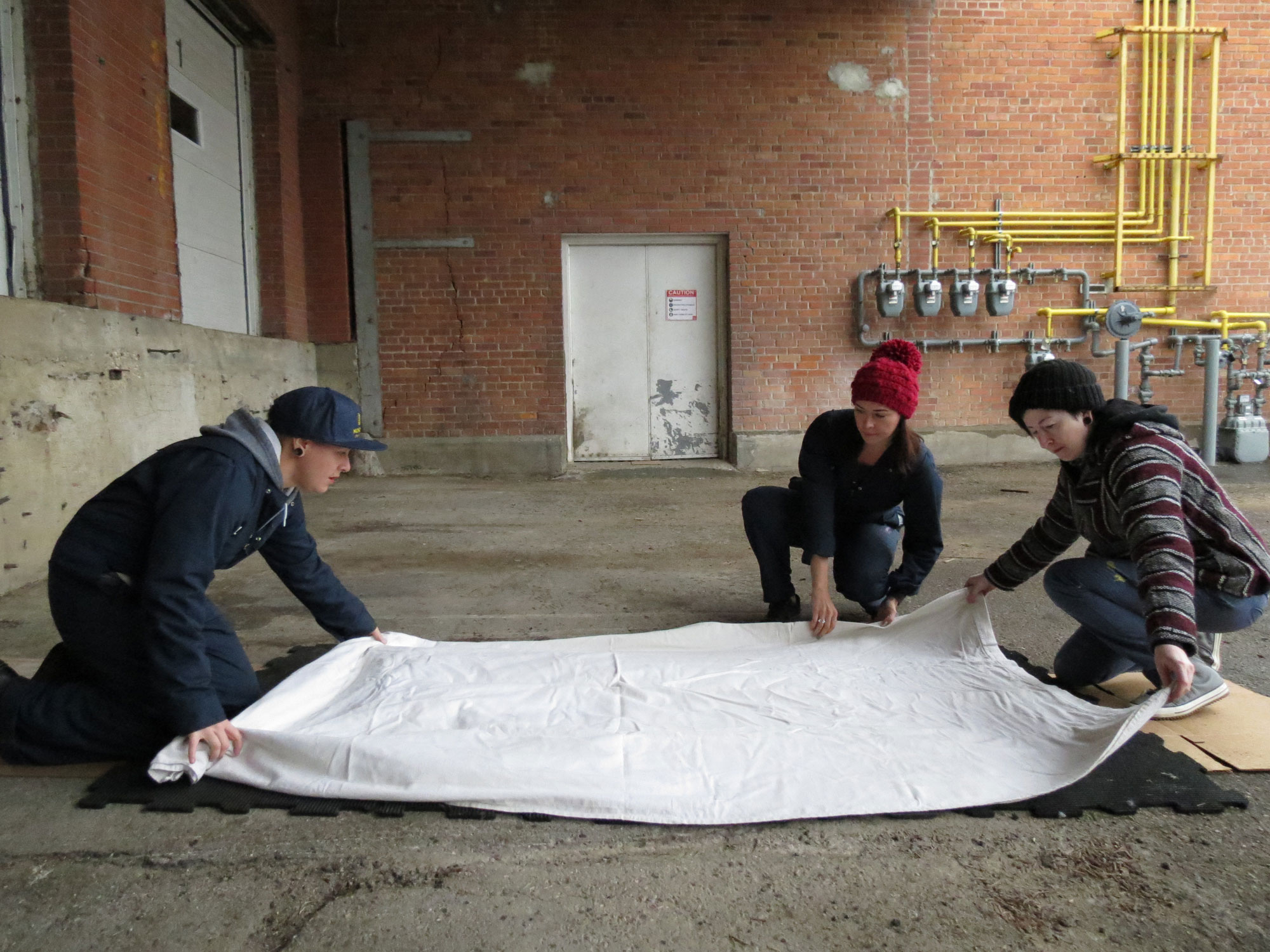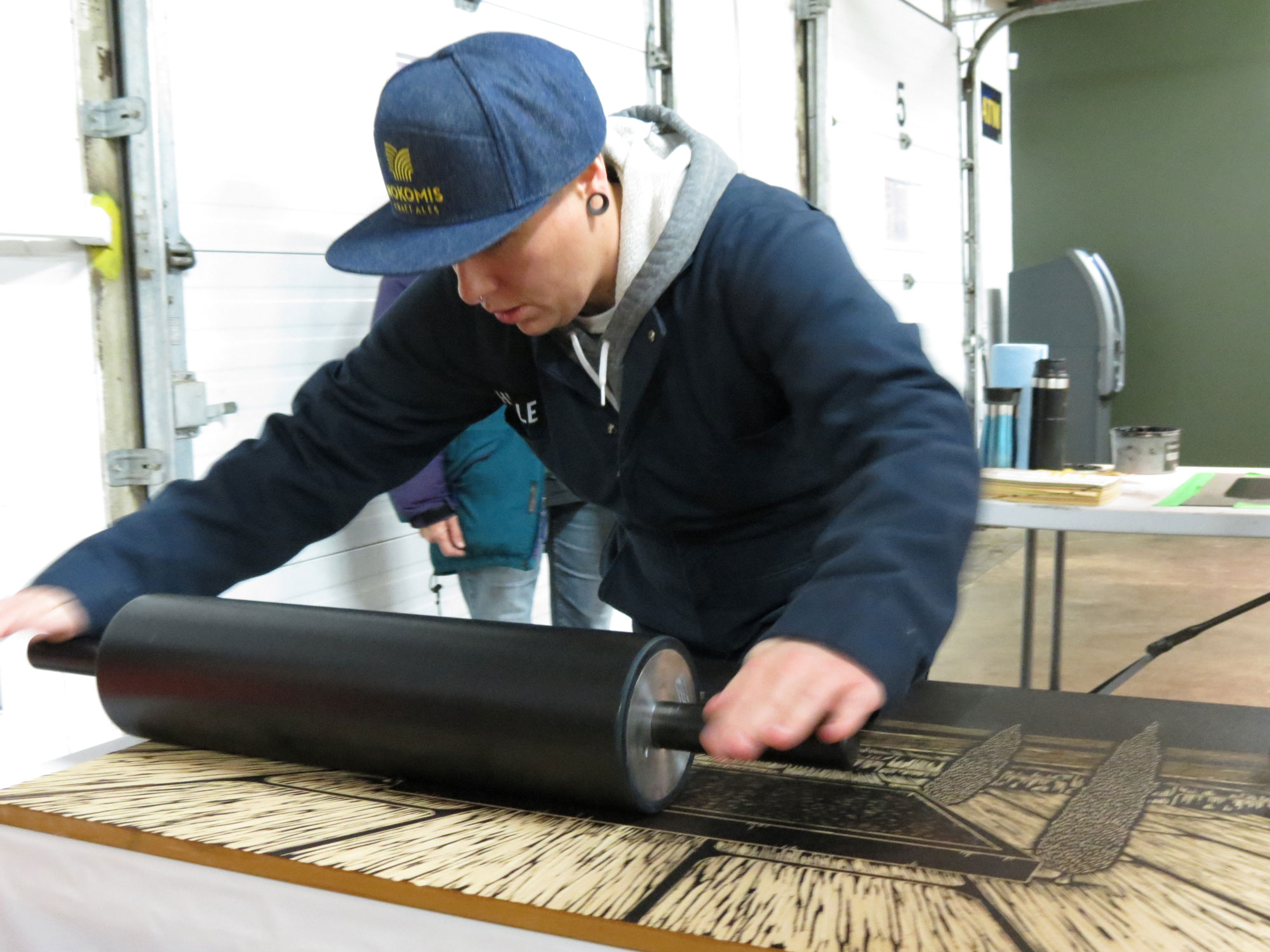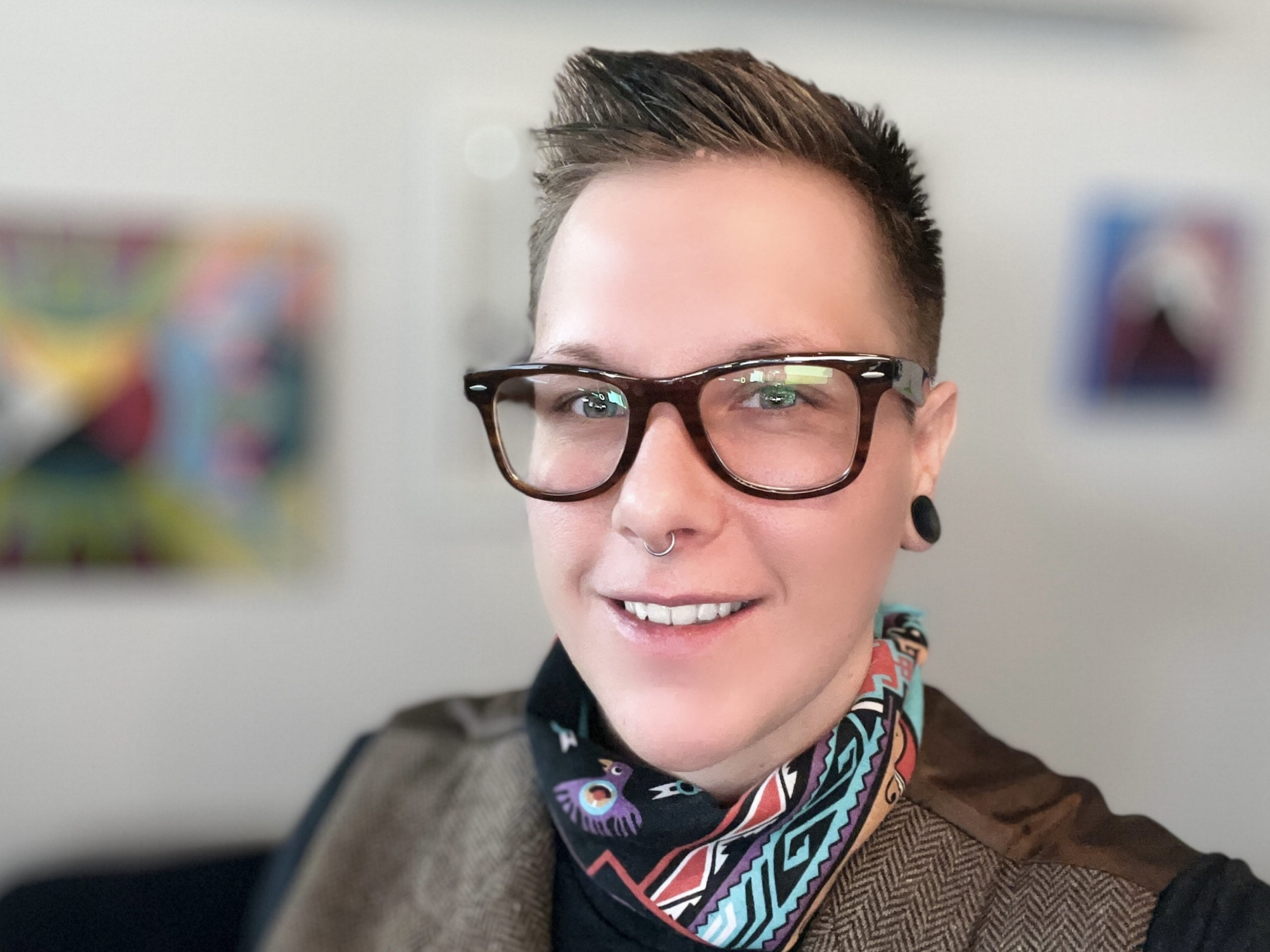Circling Back
Circling Back by Em Ironstar
 Almost five years exactly before I started as Executive Director at the Saskatchewan Arts Alliance (SAA), in 2016, I wrote an op-ed for the SAA about the importance of scalable, responsive funding for emerging arts organizations. When I circled back to it five years later, I almost read it through my fingers, anticipating something sort of cringe-worthy that didn’t resonate with me anymore. What I discovered couldn’t be any further from the truth.
Almost five years exactly before I started as Executive Director at the Saskatchewan Arts Alliance (SAA), in 2016, I wrote an op-ed for the SAA about the importance of scalable, responsive funding for emerging arts organizations. When I circled back to it five years later, I almost read it through my fingers, anticipating something sort of cringe-worthy that didn’t resonate with me anymore. What I discovered couldn’t be any further from the truth.
Sadly, or maybe thankfully, depending on how you look at things, arts funding in Saskatchewan hasn’t changed much since 2016. While there have been no increases to provincial general revenue funding to SK Arts since then, there have been no significant cuts either. I know that operating an arts organization on a status quo budget year after year, for more than half a decade now has not been easy for Saskatchewan Arts Organizations.
I also recognize that SK Arts has been working in this same situation, and I want to acknowledge that SK Arts has worked hard to ensure that granting levels have not been affected in this period. I believe SK Arts efforts to maintain granting levels despite status quo or declining provincial funding has been of the utmost importance, and I appreciate the priority placed on granting. However, I am nervous about the coming years for the arts in our province, especially as we try to navigate the devastating impact the pandemic has had on the arts. The precarious arts funding situation we face is one of the reasons that I chose to take on the ED role at the SAA; I want to make positive changes for the arts in Saskatchewan.
In this op-ed, I want to revisit to what I wrote about in 2016 and provide a bit of an update about my art practice and the printmaking studio I helped co-found over ten years ago, Articulate Ink. To talk about how that has led me to my new role at the SAA and how I think my experience in the Saskatchewan ecology has shaped the way I think about the importance of arts advocacy.
 When I wrote the article in 2016, we were hopeful for the future at Articulate Ink. SK Arts was reviewing the Professional Arts Organizations Program (PAOP) to address historical funding inequities. When SK Arts relaunched the program in 2017, there were improvements – minimum funding levels were increased, and our operational funding doubled, from $10,000 to $20,000, which was incredibly welcomed. I had quit my full-time job to focus more on growing Articulate Ink as a self-employed artist.
When I wrote the article in 2016, we were hopeful for the future at Articulate Ink. SK Arts was reviewing the Professional Arts Organizations Program (PAOP) to address historical funding inequities. When SK Arts relaunched the program in 2017, there were improvements – minimum funding levels were increased, and our operational funding doubled, from $10,000 to $20,000, which was incredibly welcomed. I had quit my full-time job to focus more on growing Articulate Ink as a self-employed artist.
In 2017, Articulate Ink had one of our best years ever. We secured additional funding from the City of Regina and partnered with many different arts organizations across the city to hold Regina’s first-ever printmaking symposium, Flatgrafika, and it was a huge success. We had guest printmakers join us from across the country and the province. There were exhibitions, demonstrations, a print exchange, a film screening, and a relay-based printmaking event called the Printlympics. It felt like Articulate Ink and printmaking in Saskatchewan had come into its own, and Flatgrafika was a culmination of all of our tireless work.
In 2018, as founders, we started to get tired and burn out. We began talking about why we were doing what we were doing. We had started this printmaking studio out of necessity after graduating from University to be artists and do what we love: make prints. Still, we had been doing anything but making art for the better part of a decade now. We were teaching workshops and programming outside of the studio, writing grants, bookkeeping, managing part-time staff and printing t-shirts and apparel to keep the lights on. We had a wonderful, fully equipped studio that many other people got to use, but between working full-time and managing the organization, none of us, myself included, had much time or energy left over for our art practices. We decided that things needed to change.
We wanted to simply exist as a studio, as a place where professionally trained printmakers could come to do their work. We believed that this in itself provided enough value to merit our existence and public support. We imagined that if we could free ourselves from the burden of programming and administration, this could be the case. We needed to make some difficult decisions.

In 2020, we decided that we would no longer apply for the SK Arts PAOP program at the next deadline. Our vision for the organization did not fit with the funding model, and we were done with trying to contort ourselves to fit a funding program that no longer suited our goals as artists. This will also allow us to potentially apply for other project funding programs that we are currently ineligible for that might better suit our current needs and capacity as a small collective.
It took us a long time to come around to making this decision as giving up core operational funding felt, and sometimes still feels, like a failure, but it also feels like freedom. As we move closer to being without the administrative burden of grant writing and reporting (we still have ONE MORE report to get in), statistics recording, record keeping and detailed financial reporting, I can start to feel a literal weight lift. I hope that once this work is completed for good, I will find my muse and desire to create art again because over a decade of trying to survive as a young arts organization has nearly killed my drive to pursue my once passionate love of printmaking.
In 2016, I talked about how the commercial apparel printing part of our organization was a key to our success, which is still true to this day. Without this self-generated revenue stream, we would have closed our doors long ago. While business had admittedly slowed a great deal in the last few years due to our capacity and the pandemic, apparel printing still provides a revenue boost. We are lucky that our medium lends itself to commercial production.
Looking back, I still believe what I thought in 2016 – that scalable, responsive funding for arts organizations is crucial.
If we had been able to secure enough core funding that would have allowed us to pay even a part-time administrator a decent living wage, I think the outcome of Articulate Ink could have been much different. We had a lot of hope and ambition to grow a printmaking centre in Saskatchewan like those in other cities across Canada to encourage artists to stay and practice here. However, we could not do it at the expense of our personal lives, finances, and art practices. We had to choose ourselves, and now the future of Articulate Ink looks very different from where we imagined we were headed when we started, and that is okay. Now we are a small collective just trying to figure out how to make some art. I, for one, can’t wait to get back to that part.

My story and the story of Articulate Ink is why arts advocacy and the SAA are important to me. I want the future to be different for our province’s young artists and arts administrators. I want to help cultivate a province where the arts are valued and supported for the richness that they bring to our lives. I want Saskatchewan to be a place where arts administrators are compensated fairly and not burnt out and bitter. I want space in the funding system for innovation and growth and also to equitably and fairly welcome emerging artists and organizations into the mix.
The SAA emerged out of a funding crisis in the 1980s. I believe the SAA can work with the arts community to ensure we will not have to deal with another funding crisis and make things better moving forward. I believe we can be proactive rather than reactive. If you want a better future for the arts in our province, I invite you to get involved with the SAA, no matter how big or small of a commitment you can make.
Whether you are an individual artist or a part of an organization, the SAA is a collective voice for the arts in Saskatchewan, and we need your voice. The next year at the SAA will focus on renewal, strategy and planning. We will be renewing our working groups around advocacy and research, and we need passionate people to share their stories and expertise to help our community’s voice be heard. Sign up for our newsletter, follow us on social media, amplify our message and work. Respond to our calls for involvement. Let’s plan how we can make things better together because the SAA cannot do it without you.

